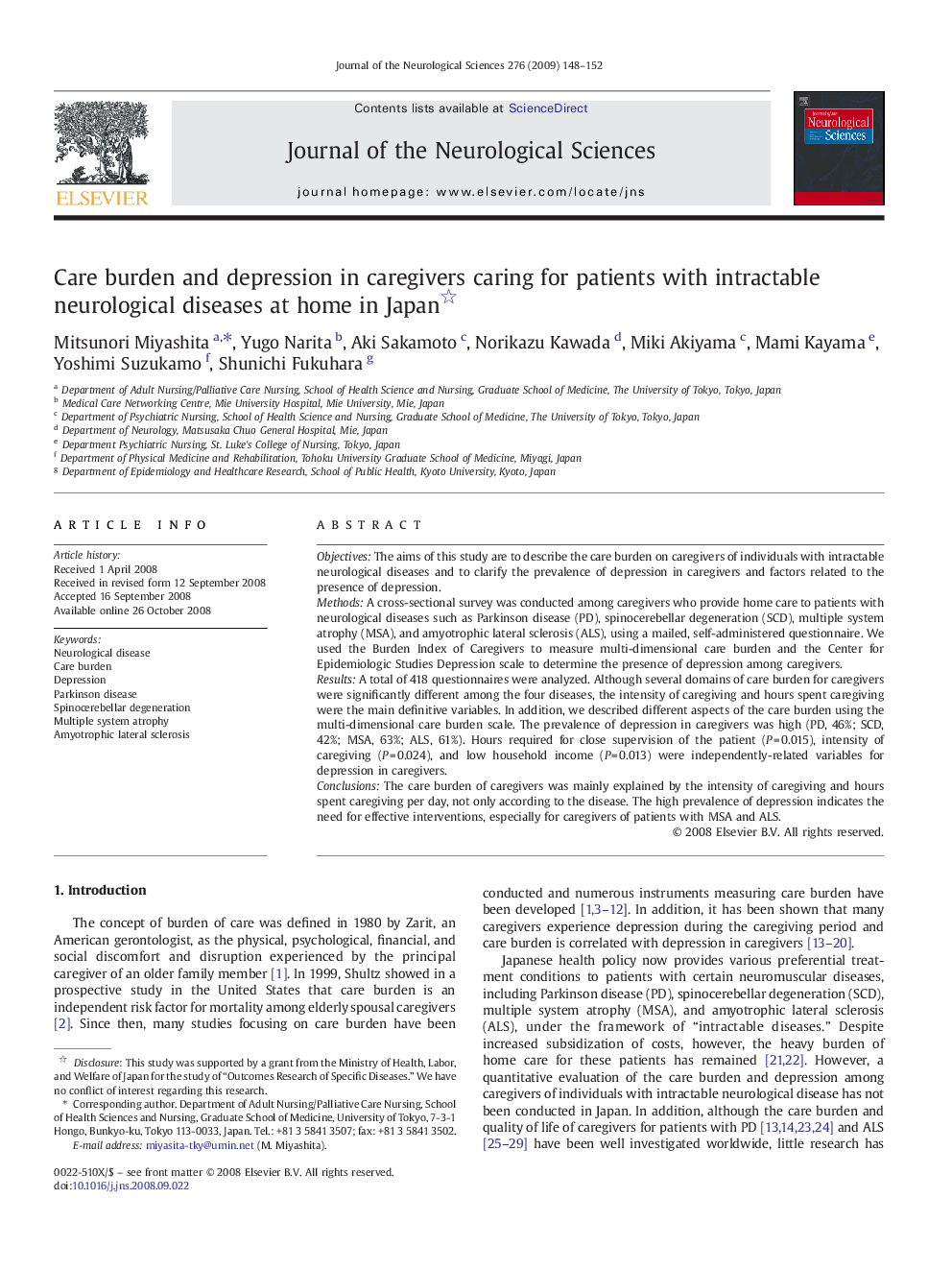| Article ID | Journal | Published Year | Pages | File Type |
|---|---|---|---|---|
| 1915434 | Journal of the Neurological Sciences | 2009 | 5 Pages |
ObjectivesThe aims of this study are to describe the care burden on caregivers of individuals with intractable neurological diseases and to clarify the prevalence of depression in caregivers and factors related to the presence of depression.MethodsA cross-sectional survey was conducted among caregivers who provide home care to patients with neurological diseases such as Parkinson disease (PD), spinocerebellar degeneration (SCD), multiple system atrophy (MSA), and amyotrophic lateral sclerosis (ALS), using a mailed, self-administered questionnaire. We used the Burden Index of Caregivers to measure multi-dimensional care burden and the Center for Epidemiologic Studies Depression scale to determine the presence of depression among caregivers.ResultsA total of 418 questionnaires were analyzed. Although several domains of care burden for caregivers were significantly different among the four diseases, the intensity of caregiving and hours spent caregiving were the main definitive variables. In addition, we described different aspects of the care burden using the multi-dimensional care burden scale. The prevalence of depression in caregivers was high (PD, 46%; SCD, 42%; MSA, 63%; ALS, 61%). Hours required for close supervision of the patient (P = 0.015), intensity of caregiving (P = 0.024), and low household income (P = 0.013) were independently-related variables for depression in caregivers.ConclusionsThe care burden of caregivers was mainly explained by the intensity of caregiving and hours spent caregiving per day, not only according to the disease. The high prevalence of depression indicates the need for effective interventions, especially for caregivers of patients with MSA and ALS.
